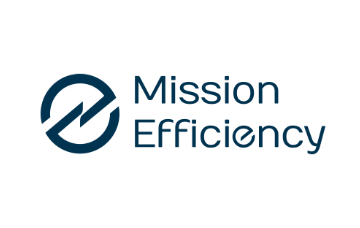An action plan for achieving green growth and sustainable lifestyles through energy efficiency
At a high-level workshop on the 'Voluntary Action Plan on Doubling the Rate of Energy Efficiency Improvement by 2030’ held on 16 October in Delhi, India, the Government of India underscored the significance of energy efficiency in national and global decarbonization efforts and launched a series of case studies from G20 countries on incentives for promoting energy efficient behaviours.
According to the International Energy Agency’s latest Net-Zero by 2050 scenario, to maintain the Paris Agreement's objective of limiting global warming to 1.5°C, the global annual rate of improvements in energy intensity [1] will need to average 4.1% between now and 2030. This is double the rate achieved in 2022, and higher than what is required to achieve Sustainable Development Goal 7.3 on energy efficiency.
India and other countries have shown that rapidly improving energy efficiency is both possible and attainable. However, as highlighted by Brian Motherway during the workshop, Head of Energy Efficiency at IEA, “Most countries in the world have reached an annual 4% energy intensity improvement at least once in the last ten years, and many have achieved it several times – but no country has achieved it consistently. So, what we need now is a concerted, collective focus on working together to meet global energy efficiency targets.”
In turn, doubling the annual energy intensity improvement rate by 2030 could save the energy equivalent of global road transport oil consumption, while promoting clean energy technologies, enhancing energy security, affordability, and sustainable development.
In this context, G20 Leaders and Energy Ministers' consensus on the Action Plan for Doubling Energy Efficiency Improvement by 2030 underscores this collective commitment for greater action. The plan was informed by a strategic study across various sectors, presented earlier this year in support of the G20 Energy Transition Working Group's efforts.
“Energy efficiency should be considered high among policy priorities, and it presents ample opportunities for global cooperation in all sectors,” said Shri Abhay Bakre, Director General, the Bureau of Energy Efficiency of India (BEE) at the workshop, which was organized by the BEE, Ministry of Power, Government of India, in partnership with Sustainable Energy for All (SEforALL), the Alliance for an Energy Efficient Economy (AEEE), and the International Energy Agency (IEA).
Promoting Energy-Efficient Lifestyles and Decision-Making
During the workshop, India’s Ministry of Power and the BEE launched a new publication titled Promoting Energy-Efficient Lifestyles and Decision-Making. The compendium presents case studies from G20 countries to shed light on the behavioural and emotion-based incentives that spark energy-efficiency actions worldwide, and how policy makers can leverage them to mobilize a global movement for healthy and sustainable lifestyles. Behavioral changes, like using efficient appliances, public transport, and energy management in businesses are crucial, alongside technical energy improvements for a net-zero pathway.
Delivering Energy Efficiency Improvements at Scale
The workshop discussed high-impact opportunities for energy efficiency in G20 countries and highlighted transferrable learnings from India. Experts discussed opportunities to fuel the energy services companies (ESCO) market in India, to scale-up motor efficiency in small and medium enterprises and to re-think building energy codes for a net-zero energy world. Among other initiatives, Prime Minister Modi’s Mission Lifestyle for Environment (LiFE) initiative has brought international attention to the significance of lifestyles and mindful consumption choices. If adopted worldwide, Mission LiFE's actions — including behavioural changes and sustainable consumption choices — could deliver one-fifth of the emissions reductions needed by 2030 and approximately USD 440 billion in savings according to IEA analysis.
To double global energy efficiency rates, countries must tailor policies, leverage proven experiences, and triple investments in energy efficiency by 2030, focusing on high-impact areas like buildings, appliances, transport, and industry.
“Success stories, policy buy-in and risk-mitigation are the recipe for success” shared Bansi Shukla, Senior Program Manager at Shakti Sustainable Energy Foundation, at the workshop. De-risking instruments, financing models for small and medium enterprises and counter-guarantee support for energy service companies will be crucial to improve access to financing for energy efficiency projects, while international cooperation allows to address common barriers, foster innovation, and share best practices.
Taking the Momentum to COP28 and Beyond
The United Arab Emirates’ Presidency of COP 28 has been rallying momentum around the goal of doubling the pace of energy efficiency progress by 2030. “We as a community need to champion an ambitious target at COP28 and actively reach out to those countries who may be on the fence to support them,” urged Larissa Gross, Program Lead in E3G’s Clean Economy team.
SEforALL is proud to work closely with the Government of India and the ecosystem of partners and stakeholders to continue elevating, supporting and investing in energy efficiency. At a time of renewed focus on energy efficiency, COP28 and G20 processes offer a unique window of opportunity to increase collaboration between Global North and Global South countries, mobilize finance, and deliver more ambitious, long-term, and concerted efforts to implement the Voluntary Action Plan both in India and globally.
We intend to take this conversation to the Vienna Energy Forum in November and to COP28 at the end of the year, pushing for greater consensus and accelerated action.
[1] Energy intensity refers to the amount of primary energy needed to produce a dollar of economic output.

